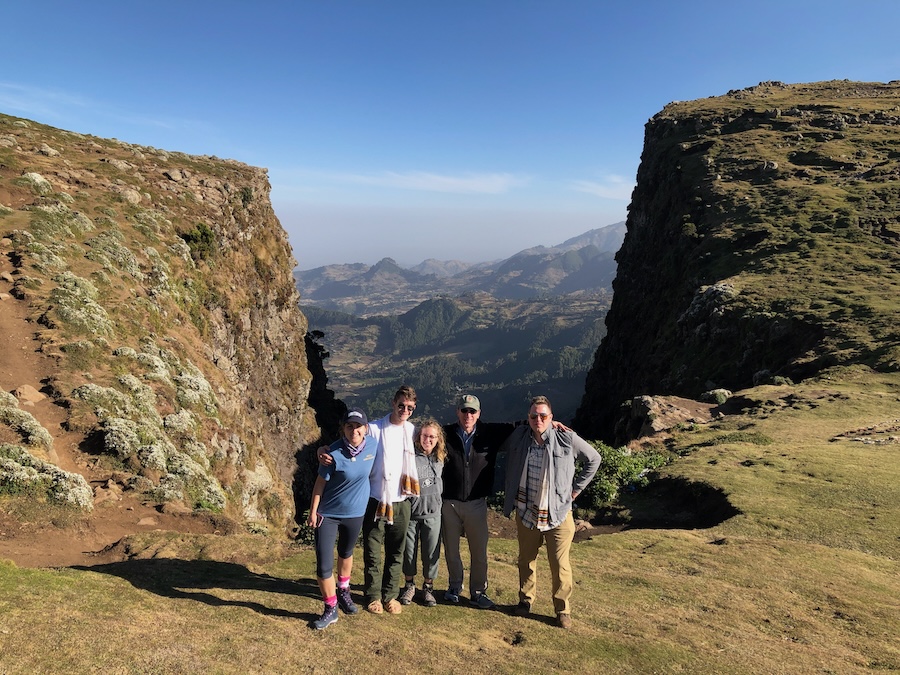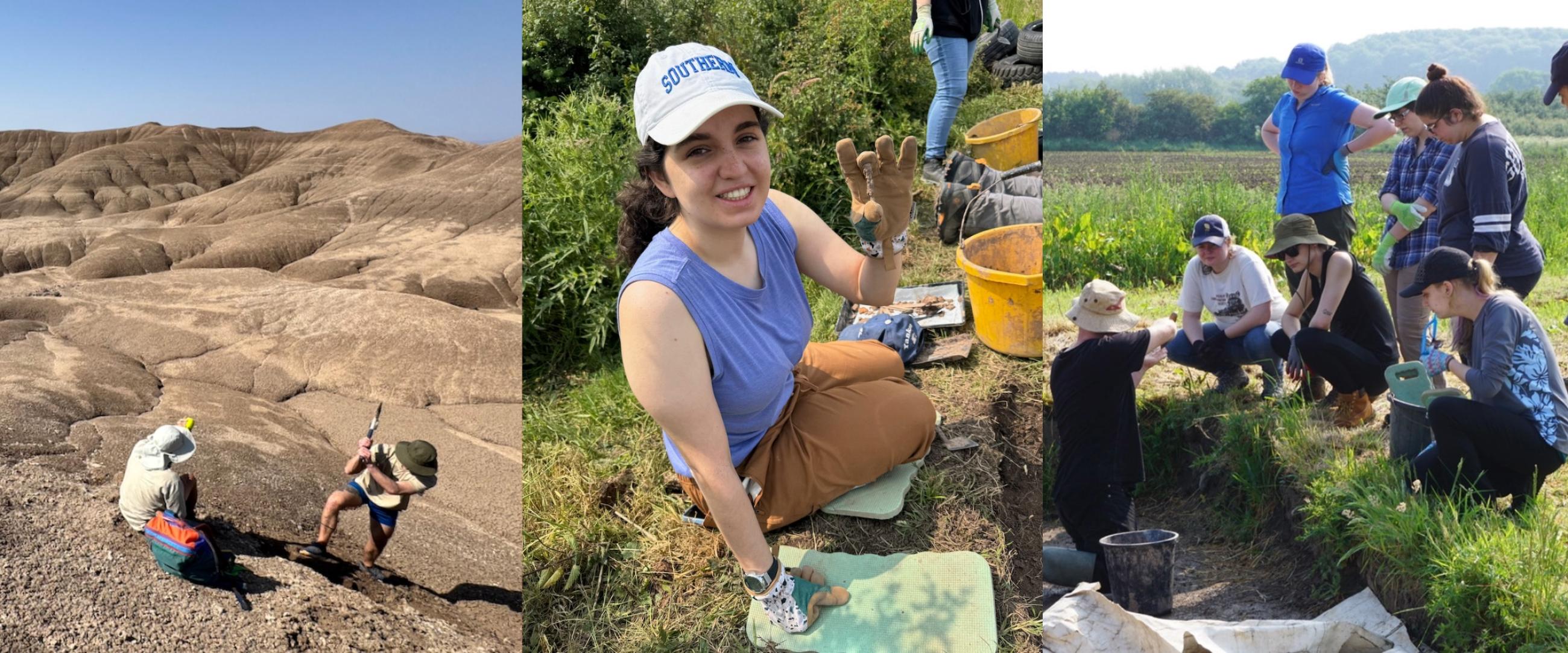Southern’s unique Master of Science program in Archaeology and Cultural Resource Management (CRM) is an opportunity for discovery, a gateway to the growing archaeology industry, and a chance to conduct advanced research into the human past.
This new program is designed to be an accessible and affordable option for students looking to start or accelerate a career in the archaeology field or industry. This program will prepare students for managerial and executive positions in cultural resource management, heritage museums, and local, state, and federal heritage agencies. It will also create a pathway for further academic study by readying students for doctoral training at research universities.
Graduates will have a competitive edge in a growing job market through practical, hands-on learning experiences, working on real excavations and archaeological collections in the laboratory, or traveling to international field schools taught by experienced archaeology faculty. Our field programs in Connecticut (Henry Whitfield House, West Rock), England (Poulton site) and Ethiopia (Gona) offer one-of-a-kind archaeological experiences.
For decades, students in the Northeast seeking a career in the CRM industry have needed to move out of state, take on enormous debt, and compete for a limited number of spots at highly selective institutions. Southern’s program provides a local, accessible, affordable opportunity for students in Connecticut and the Northeast to pursue this career path and earn a good living here in the state. SCSU undergraduates can also take advantage of an Accelerated Pathway by completing up to twelve credits at the 500 level in their Senior year.
SCSU faculty are committed to providing a curriculum that prepares graduates for industry work or doctoral training at top-tier universities. By leveraging partnerships with the state’s industry-leading firms and government institutions, the program will offer student internships with potential career pathways and recruit additional faculty with years of industry experience. SCSU offers amazing learning and experiential opportunities outside of anthropology, and we have left flexibility in the degree program for students to take advantage of courses in history, earth sciences, geographical information systems, sociology, biology, or other related fields.
- Archaeological theory, method, and ethics
- Field work
- Laboratory work
- Cultural Resource Management (CRM)
- Methodological specialties, including, but not limited to: Bioarchaeology, lithics, ceramics, historical period artifacts, museum studies, zooarchaeology, and archaeobotany
- Independent research and thesis writing
- Complete your B.S. and M.S. in five years
- Prepare for high-paying jobs in the CRM industry or make yourself competitive at the best doctoral programs
- Save 12 credits of tuition by completing both degrees at SCSU
- Participate in hands-on education, working on real excavations, on archaeological collections in the laboratory, or travel to international field schools taught by experienced archaeology faculty
- Rolling admissions and flexible one year, two year, and three year completion schedules
- Access to materials to complete original research, present at conferences, and publish in peer-reviewed journals
Students who complete the MS in Archaeology and Cultural Resource Management will be able to:
- Demonstrate knowledge of the theoretical, methodological, and ethical standards of archaeology.
- Students will receive a strong framing for these skills in their first two semesters in Archaeological Methods, Laboratory Methods in Archaeology, Seminar in Archaeological Theory and Ethics, an advanced technique in archaeology course, and in their first summer with their Field School. In addition to assessment within the individual courses, students will be expected to fully express mastery of all three frameworks in their Thesis or Project.
- Demonstrate knowledge of the major concepts, legislation, and research trends in Cultural Resource Management (CRM).
- Students will receive training in these areas in their first semester in Cultural Resource Management. They will be expected to apply these skills as a part of their Internship. Faculty will collect feedback from external internship hosts to assess effectiveness of their knowledge.
- Be able to implement research methods, write technical reports, and conduct all the duties necessary for employment as a primary investigator in the CRM industry.
- Students will receive training in these skills in Laboratory Methods in Archaeology, Cultural Resource Management, Field School, and their Internship. Final projects in Lab Methods and CRM will be designed with feedback from industry professionals and used as assessment instruments.
- Understand the technologies, field techniques, and laboratory techniques necessary to conduct archaeological research.
- These skills will be taught and assessed in Archaeological Methods, Laboratory Methods in Archaeology, Field School, as well in electives where students can choose to focus on more specific skills. In addition to assessment within individual courses, students will be expected to express mastery in their Thesis or Project.
- Demonstrate the ability to conduct original research, including integrating elements of research design, literature review, methodology, and data analysis.
- The final projects of Archaeological Methods, and Laboratory Methods in Archaeology will require students to learn the process of conducting original research. Students’ Thesis or Project will require mastery of these skills. Assessment will be conducted by instructors and ultimately by each students’ thesis or project committee.
- Demonstrate a deep understanding of how archaeologists interpret our findings and educate about past peoples in a way that is humanistic and inclusive.
Students will learn these skills in Seminar in Archaeological Theory and Ethics, Cultural Resource Management, as well as in their advanced technique in archaeology courses, and others. Students will be assessed in each of these classes but will be expected to integrate an ethically-grounded, humanistic, and inclusive framework into their Thesis or Project.

Careers
This program will prepare students for managerial and executive positions in cultural resource management, heritage museums, and local, state, and federal heritage agencies. The program will also prepare students for doctoral training at research universities.
Typical Job Titles
- Primary Investigator
- Senior Archaeologist
- Project Archaeologist
- Museum Curator
- Historic Preservation Officer
- Staff Archaeologist
- Environmental and Heritage Reviewer
- Research Scientist
Accreditation
The Secretary of the Interior's Standards and Guidelines for Archeology and Historic Preservation require a “graduate degree in archeology, anthropology, or closely related field.” These guidelines are followed by the Register of Professional Archaeologists (RPA). Archaeologists who do not meet these qualifications and/or are not members of the RPA cannot conduct many tasks required by federal and state statutes.
Apply Now
Request Information
Application Requirements
School / College
College of Arts & Sciences
Department
Anthropology
Contact
Dr. Michael Rogers

